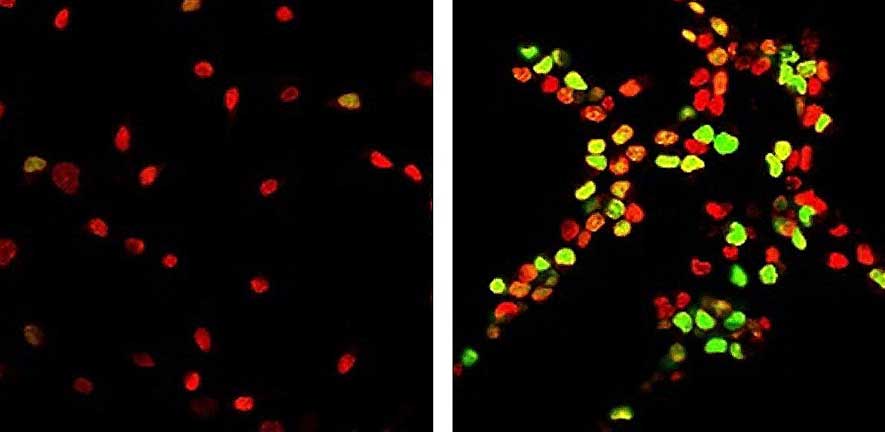We will soon learn if a much-hyped, rapamycin-like drug can boost the immune response by targeting how the body ages.




A group of DARPA-funded scientists associated with Elon Musk say they’ve invented a new way to “rapidly implant” brain electrodes into rats — and their “sewing machine” implantation system could facilitate the creation of a mind-reading brain-computer interface, as first reported by Bloomberg.
“Although more research is needed to refine the overall interface system and better integrate its components, these developments may ultimately open the possibility of bundling next-generation robotics, AI software, and electronics to create alternatives to present-day neurosurgical techniques,” DARPA biotech director Justin Sanchez told Bloomberg.
Non-addictive painkillers from scorpion venom? Bring them on!

A team of researchers has just demonstrated quantum enhancement in an actual X-ray machine, achieving the desirable goal of eliminating background noise for precision detection.
The relationships between photon pairs on quantum scales can be exploited to create sharper, higher-resolution images than classical optics. This emerging field is called quantum imaging, and it has some really impressive potential — particularly since, using optical light, it can be used to show objects that can’t usually be seen, like bones and organs.
Quantum correlation describes a number of different relationships between photon pairs. Entanglement is one of these, and is applied in optical quantum imaging.


Humans today are mosaics, our genomes rich tapestries of interwoven ancestries. With every fossil discovered, with every DNA analysis performed, the story gets more complex: We, the sole survivors of the genus Homo, harbor genetic fragments from other closely related but long-extinct lineages. Modern humans are the products of a sprawling history of shifts and dispersals, separations and reunions—a history characterized by far more diversity, movement and mixture than seemed imaginable a mere decade ago.
Original story reprinted with permission from Quanta Magazine, an editorially independent publication of the Simons Foundation whose mission is to enhance public understanding of science by covering research developments and trends in mathematics and the physical and life sciences.
But it’s one thing to say that Neanderthals interbred with the ancestors of modern Europeans, or that the recently discovered Denisovans interbred with some older mystery group, or that they all interbred with each other. It’s another to provide concrete details about when and where those couplings occurred. “We’ve got this picture where these events are happening all over the place,” said Aylwyn Scally, an evolutionary geneticist at the University of Cambridge. “But it’s very hard for us to pin down any particular single event and say, yeah, we’re really confident that that one happened — unless we have ancient DNA.”

Near-death experiences have gotten a lot of attention lately. The 2014 movie Heaven Is for Real, about a young boy who told his parents he had visited heaven while he was having emergency surgery, grossed a respectable $91 million in the United States. The book it was based on, published in 2010, has sold some 10 million copies and spent 206 weeks on the New York Times best-seller list. Two recent books by doctors—Proof of Heaven, by Eben Alexander, who writes about a near-death experience he had while in a week-long coma brought on by meningitis, and To Heaven and Back, by Mary C. Neal, who had her NDE while submerged in a river after a kayaking accident—have spent 94 and 36 weeks, respectively, on the list. (The subject of The Boy Who Came Back From Heaven, published in 2010, recently admitted that he made it all up.) Science, cool facts, mind, emotion, breakthrough, science.
Their stories are similar to those told in dozens if not hundreds of books and in thousands of interviews with “NDErs,” or “experiencers,” as they call themselves, in the past few decades. Though details and descriptions vary across cultures, the overall tenor of the experience is remarkably similar. Western near-death experiences are the most studied. Many of these stories relate the sensation of floating up and viewing the scene around one’s unconscious body; spending time in a beautiful, otherworldly realm; meeting spiritual beings (some call them angels) and a loving presence that some call God; encountering long-lost relatives or friends; recalling scenes from one’s life; feeling a sense of connectedness to all creation as well as a sense of overwhelming, transcendent love; and finally being called, reluctantly, away from the magical realm and back into one’s own body.
